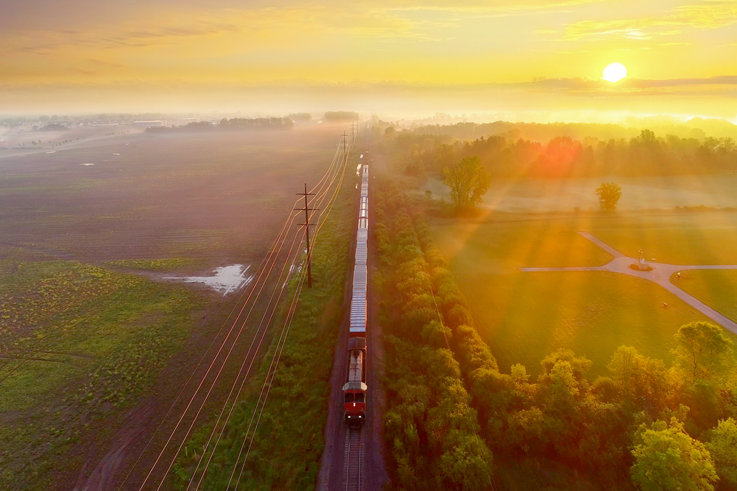
-
HOME
-
WHAT IS STANDOur Mission Our Values Our Help Contact
-
WHAT WE FIGHT FORReligious Freedom Religious Literacy Equality & Human Rights Inclusion & Respect Free Speech Responsible Journalism Corporate Accountability
-
RESOURCESExpert Studies Landmark Decisions White Papers FAQs David Miscavige Religious Freedom Resource Center Freedom of Religion & Human Rights Topic Index Priest-Penitent Privilege Islamophobia
-
HATE MONITORBiased Media Propagandists Hatemongers False Experts Hate Monitor Blog
-
NEWSROOMNews Media Watch Videos Blog
-
TAKE ACTIONCombat Hate & Discrimination Champion Freedom of Religion Demand Accountability
More in Common Study Shows We Really Do Have More in Common
A few months ago, I took the AMTRAK California Zephyr from Chicago to Emeryville, California, with my 20-year-old nephew, who was born and raised in Germany. He was in the United States for a semester in an East Coast college and wanted to see the country on spring break.
I hadn’t seen him since 2019, so it was quite the reunion.

As a precocious student might, he dove right into politics as we had breakfast before we boarded the train. I joined him in the discussion for a bit before I cautioned him that many, if not most, of the people on the train might have opinions very different from his and that it would be good to maintain some decorum. I suggested that, rather than getting into potential disagreements, he might better enjoy just getting to know as many people as he could in the two and a half days he had and notice that, for the most part, they are friendly, good people. He did, and I did the same. Not only did we discover—or rediscover in my case—how stunningly, spectacularly beautiful our country is, but how many wonderful people there are.
The study suggests that things are not as the media and various political factions would have us believe. Stereotypes crumble.
Riding a cross-country train is a great way to get to know people and to see them at their best. Everyone is relatively carefree and having fun, regardless of race, nationality, religion or political stripe. From what I experienced, everyone is polite and respectful. Everyone says “ooooooh” and “ahhhhhh” at the same sights. Everyone has a story to tell—and, in a relaxed environment, is more than willing to tell it. And somehow, in that atmosphere, people seem more inclined to listen.
In this hotly contested election year, the trip was an eye-opener: it seems that people can’t be pigeonholed.
That’s what I thought of when I read a recent article in Freedom about a two-year study regarding misperceptions of people and their religious beliefs.
This study was conducted by a group called More in Common, whose mission “is to understand the forces driving us apart, find common ground and bring people together to tackle shared challenges.” In 2023 and 2024, they interviewed and surveyed a representative sample of more than 6,000 Americans of Protestant, Catholic, Jewish, Muslim and Latter-day Saints communities—as well as Americans of no faith—about polarization and common misperceptions in today’s society.
Spoiler alert: The study agrees with me—people can’t be pigeonholed.
In the face of the divisiveness promoted every minute of every day, the results of the study suggest that things are not as the media and various political factions would have us believe.
Stereotypes crumble.
Case in point: The media typecasts Christian Evangelicals as staunchly aligning with a particular political party. In contrast, the study found that “non-Evangelicals significantly overestimate the importance Evangelicals place on their political identity and partisan affiliation. For example, non-Evangelicals overestimate by 10 times how much Evangelicals say political party affiliation is their most important identity (41 percent estimate versus 4 percent reality).”
There were similar results with other religious groups and denominations.
So if they don’t uniformly adhere to a political party, what do they align with? Their faith. Among people of faith in the United States—no matter what religion—an average of 73 percent view their faith as an important part of who they are (so much for the idea gleefully promulgated by the media that faith is deteriorating). What these people don’t necessarily do in many cases is regularly attend church/temple/mosque. That number is declining. But individual faith remains strong.
So if they cling tightly to their own faith, they’re intolerant of other religions, right? Nope. The study found “the majority of Americans across religious groups value religious pluralism and want the United States to be a place where people of all religions feel that they belong.” For example, although the general public thinks that less than half of Evangelicals and Muslims favor religious pluralism, 78 percent of Evangelicals and 75 percent of Muslims embrace that ideal.
This barely scratches the surface. The executive summary of the study gives a good idea of its broad findings. I recommend it as inspiring and encouraging reading.
One more thought: Although the study doesn’t address it, from my observation, I would think that, regardless of their individual religious beliefs, close to 100 percent would “ooooooh” and “ahhhhhh” at the glorious sights of mountains and endless skies. Moments like that are great opportunities to start conversations to see if we might have even more in common.









